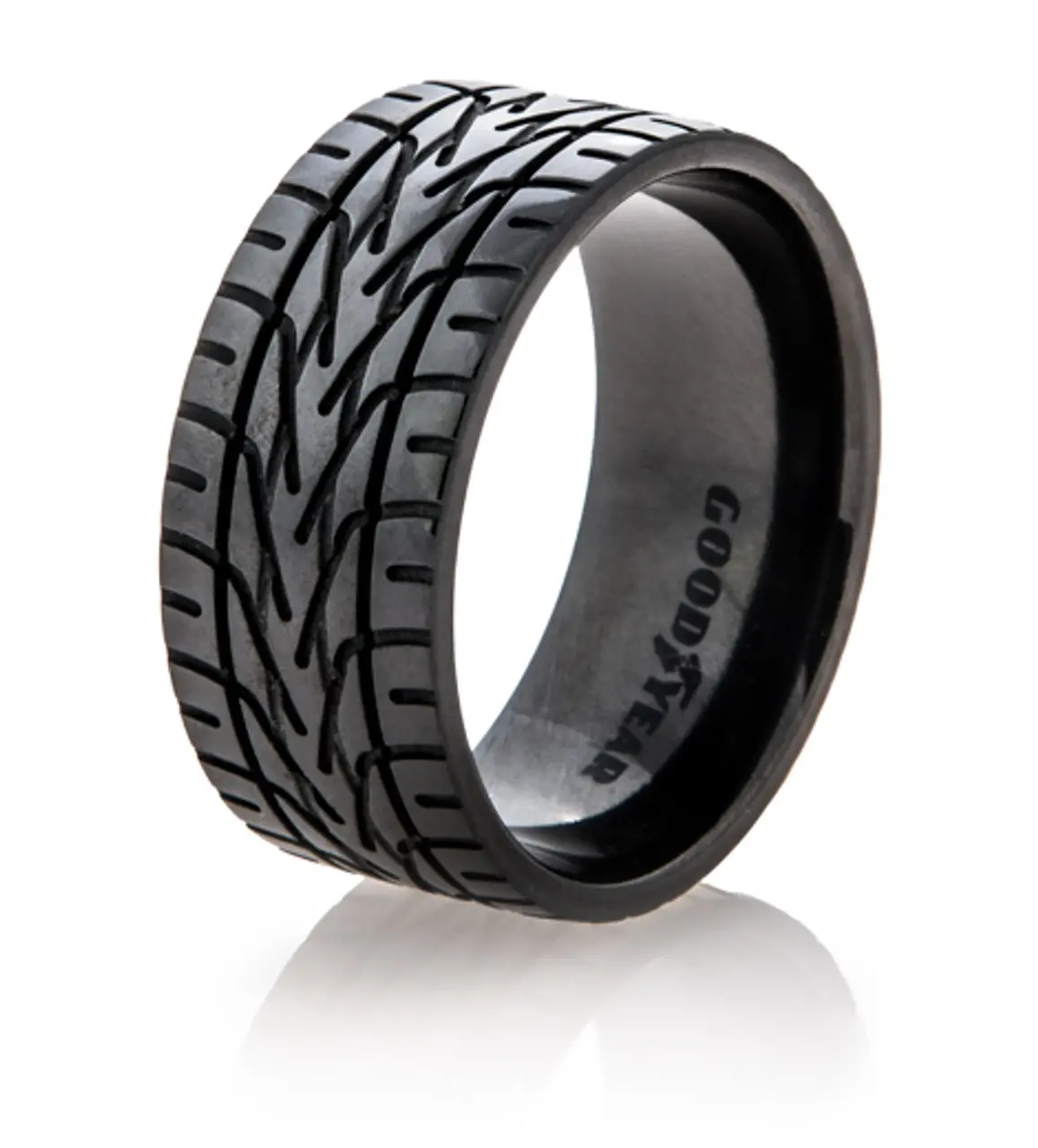Have you ever been behind a car with a driver that has one foot on the brakes and the other on the gas. It seems to resemble the effect you are looking for and incredibly distracting and annoying. When brake lights go on you expect them to be making a stop or rapid deceleration so you do the same as well as the people behind you and all of the sudden you are speeding up, slowing down, back and forth. It’s becomes a terrible way to drive. The reason we have 2 eyes is to be able to judge these things and it works fine if you aren’t driving distracted.
Some EVs and hybrids have a ‘one foot driving’ mode where if you take your foot off the gas, it does start to actively brake and you will eventually come to a complete stop. Technology Connections did a video on it a little while back, showing how it can be bad if the brake lights aren’t programmed to come on in this situation.
Most have KERS. This is what it is. My brake lights go on when it hits a certain % of KERS full effect.
What if you don’t have 2 eyes?
3 eyes works just as well.
Declaration can happen through a variety of means. Simply not accelerating would be the first one, due to friction. But even steadily accelerating on an upward slope would decrease the vehicle’s speed, and you don’t want to give vehicles behind the idea that a stop is being initiated.
You’ve spelled out the entire problem but have come to incorrect conclusions. If you’re directly behind a car, it becomes hard to sense acceleration or deceleration of other vehicles. More importantly, the brake is often used to decelerate on highways and not initiate a stop. This all leads to a lot of confusion and ultimately crashes every year.
The situations you mentioned are exactly the problem areas. Not accelerating it slowing down, often quite quickly, to make an exit. Dangerous. Going up a slope may or may not change speed, which needs to be known. Again dangerous. Same with downhill which is actually more dangerous not knowing how hard braking is happening.
So we have the technology to fix this. We can invent either variable break lights that change brightness or zoned lights that tell you “I’m slowing down” versus “I’m braking hard”. We could fix this because cars are dangerous enough as is
Technology Connections on YT has. Awhile rant about this. https://youtu.be/U0YW7x9U5TQ?si=SZaEzNCDKoLXhx83
A rant? Alec? Surely, you jest.
Alec would never rant about anything! (/s)
Because there are laws that specify when the brake light has to come on, and it isn’t when the car shows down (slightly). You could be starting to go up hill, or a list of other reasons. The point of brake lights isn’t too signify the car slowing, but that the driver intends to slow down. Which is also why it doesn’t come on if you’re motor breaking" (is that the right term?).
This obviously varies wildly depending on where you are in the world. I’m also sure there are some places where it would be allowed.
Which is also why it doesn’t come on if you’re motor breaking" (is that the right term?)
I believe the term you technically want is engine braking
Oh yes, that sounds right. Thanks!
Because there are laws that specify when the brake light has to come on, and it isn’t when the car shows down (slightly).
To be clear, the laws say when it must illuminate. They do not (in the US) prevent illuminating it for other reasons in any way. The law says the light must illuminate/burn if you are actively pressing the brake pedal, but does not prevent it from also illuminating if a certain amount of regenerative braking is applied or a deceleration is detected. Theoretically an automaker could get away with making the brake lights simply always illuminate (and that loophole would be fixed in days, so no one does it).
That is indeed US-specific. I’m in the EU, and here it’s defined by when and how it’s switched. Specifically, it is required to be tied to the brake pedal (i.e. then intention to brake) and/or the hand brake being pulled. It is not allowed to illuminate otherwise. But the exact specifics probably also vary by country here. That’s why I emphasized that part.
EDIT: There are actually deceleration values in some laws, possibly tied to regulation of EVs and the regenerative braking. Since that isn’t necessarily tied to the brake pedal when silmulating engine braking, but can be adjusted in strength at will (it isn’t tied to the mechanics of the drag of an idling engine as it would with an ICE). A quick google told me that the lights are allowed to come on at 0.7 m/s² and are required to come on at 1.3 m/s². This obviously implies that they are NOT allowed to come on below 0.7 m/s². This still applies only to (pure) EVs, as far as I can tell (not hybrids, and not ICE powered cars).
Yep, EU as usual having reasonable and well-thought out laws, give the US about 5 more years and they’ll make it law here too.
Standardised is a funny word, a car manufacturer doesn’t standardise. Laws and 3rd parties like ANCAP do.
When they need to do it to sell it with certain safety requirements, they will.
However, even if those happen, and car makers today start building them with that, it’ll take a decade or longer before you’ll start seeing them in majority on the road. So even if you lobby for it, expect time since I’d say less than half of all people buy new cars, so it’s not until the second hand market sees it will it be commonplace.
Right now the second hand market is starting to see things like collision avoidance systems and they will often flash brake lights when emergency braking on behalf of the driver.
A related tangent is now that there are so many distracted drivers, engine braking in a standard can become hazardous. I often will tap my foot on the brake so the people behind will register that my speed is decreasing.
I beleive that should be common practice when down shifting to slow because it’s not much different from braking without any brake lights. However, I’ve come to also trigger the lights even when coasting down in top gear. The slightly harder engine braking in a manual, even in top gear, combined with the increase of distractions, has me concerned about the same thing as you.
I heal-toe, so I’m pressing the brake as I’m engine braking. But I think I’ve read somewhere that newer manuals actually will turn on the brake light on heavy deceleration via engine brakes, I just don’t know firsthand because every very I’ve owned has been old as shit. Ditto with electric cars that have aggressive regen braking.
Same here
Similarly, even though most cars with cruise control have a cancel button, I always cancel via a gentle tap of the brake pedal instead. Quick flash of the brake lights to let people know I’m about to slow down.
Because deceleration is not braking and conflating the two is extremely dangerous.
Think for more than 2 seconds plz
deleted by creator
This would basically mean that the brake light would stay on almost all the time that you weren’t actively accelerating.
As I understand the idea of “single pedal operation”, taking your foot off the accelerator pedal initiates regenerative braking. If your foot is not on the accelerator, you are braking, and the brake lights should be illuminated. But the brake lights are normally controlled by the brake pedal. You are braking without touching that brake pedal; the lights will not come on.
OP is trying to solve that.
I suppose the main bulk of people misinterpreting op is due to how most people don’t think of EVs as the default and as someone who lives in a part of the US where EVs are pretty rare I assumed Regen braking was activated by pressing the brakes but hey I guess that goes to show my lack of ev experience and motivation to think about how driving one works due to how rarely I come across them and have the opportunity to even consider buying one
The issue is with regenerative braking and single pedal operation of EVs. Many vehicles today will essentially brake if you aren’t on the accelerator.
Personally, I think it’s a gap in design/regulation. But not as simple as brake pedals.
deleted by creator
It’s not a perfect solution for EVs and Hybrids that can slow down quickly without pressing the brake. Technology connections has a full video on the matter, but basically things need to be updated for current tech if we want to avoid accidents due to information not being relayed to other drivers.
There are EVs that handle this by using a deceleration threshold, but that is not the same as just strapping an accelerometer to a car.
That’s a fairly complicated system to replace what is just an ultra simple switch at the pedal. The latter is even pretty likely to last the life of the car.
The problem is with electric cars that can be driven with one pedal most of the time
I was thinking about this last time I drove an ev (ioniq 5). It will really decelerate quite hard when you lift off, and it’s configurable by the driver.
I don’t think they need to do it with an accelerometer, but if the regeneration system is applying more braking force than it would take to turn on the light with the brake pedal, it should turn the light on.
Either that or they should require the brake pedal to be used beyond that point.
Edit: actually it just occurred to me that it might be no worse than downshifting in a normal car. Maybe it’s not a big deal.
Most EVs do put on the brake lights when you lift off the pedal and the regen system kicks in.
The i5 does turn on the brake lights when you use regen modes. They did have a firmware update to make the logic a bit better earlier this year though.
An accelerometer isn’t a good idea; but if the car’s systems are responding to a command from the driver to slow down, be that a press of the brake pedal, lifting off the accelerator in a car designed for 1-foot driving, etc. it should illuminate the stop lamps.
deleted by creator
Ok i’ll bite. Because why? How can you decelrate quickly enough to need to notify the driver behind you without braking?
Engine or regenerative braking can very quickly slow down a vehicle but may not activate the brake lights depending on the manufacturer.
Or crashing, I guess.
EVs have regenerative braking, where when you let off the accelerator, it immediately starts slowing down, quickly. But the brake lights don’t come on. This would make driving behind EVs safer.
Perhaps when EVs use regenerative braking, they should display their brake lights. Use brakes, show brake lights, same rule as before just enforce it.
Perhaps when EVs use regenerative braking, they should display their brake lights. Use brakes, show brake lights, same rule as before just enforce it.
Agreed.
I would like to share this with you: https://youtu.be/U0YW7x9U5TQ
Jake brakes in big trucks, but most of them do show brake lights now even though you just coast to activate them. Some drivers like to turn them off because it makes you look like a dangerous rookie in the mountains if your brake lights are on consistently while going downhill.
Old auto trannys didn’t have a bypass. You dropped to first some obeyed
Other than regen braking like everyone said (which really slows down a car almost effectively as brakes when set to the highest regen setting; look up “one pedal driving”), you can also slow down a car quite rapidly in a manual transmission if you skip a gear or two when downshifting. No brake lights come on when you do this, and honestly I think that they should.
There is a Technology Connections video about this xD:
Between XKCD and Alec, the whole of human knowledge’s pretty much covered.
I personally think cars should have two brake light switches. one for when you’re pressing the pedal at all, and one for when you’re slamming on the pedal.
that way the people behind you know if you’re just slowing down a little or actually braking.
Actually, a least some cars (probably more than you think)/have some sort of “emergency” breaking signal, which often result in the usual breaking signal blinking for a while. You need to seriously slam the brakes to see it though. E.g: https://m.youtube.com/watch?v=j_osu1WgGMU
There is also a nice technology connection video talking about braking lights for electric cars and in general, which can be dangerous.
I rented an electric car recently (Mach-E) and almost exclusively drove in single-pedal mode.
Thought a lot about this video as I was driving.
I’ve seen some people play with the programming of BMWs. I was really impressed with one I saw that had 3 levels of lighting. It didn’t affect the actual brake lights but instead utilized the rear fog light. Normal braking was just the normal lights. Moderate braking turned on the rear fog lights. But when he slammed the brakes, the rear fogs flashed.
I was also pissed to be in traffic that allowed for all 3 modes in a few miles.
if you have an adequate following distance you never need to brake hard
That’s frequently not the choice of the driver. An adequate follow distance provides a luxurious amount of space for someone to merge into, forcing you to slow to extend the follow distance, which allows more people to merge… etc.
nope
… What?
There is no situation when one is obligated to tailgate
I know cats that blink the middle light if you brake hard.
EDIT: I’m not fixing that typo
Upvote for typo.
Most modern cars now put the hazards on automatically when the driver brakes hard.
Source? I have never seen a single car that does this.
First time surprised me my because I didn’t know the car had the feature. Slammed the brakes harder than normal and hazards flashed at double time. Driving a 2010 Alfa Romeo 159.
It’s a fact.
I’m a truck driver in Germany, and even my Volvo truck turns the hazards on under hard braking.
In Europe it is required for vehicles decelerating faster than 6m/s2 and I believe some vehicles might activate their fog tail lights too.
I don’t know what the system is called but it’s been around on a lot of cars for a while now. Our car does it (2016 Nissan Qashqai) - the hazards came on automatically when I had to brake hard on the motorway, and everyone else’s hazards came on too - it was exactly the reason I knew how I knew I had to instantly brake hard due to all the cars ahead hazard lights coming on with the brake lights.
I reach for the hazard lights any time I’m about to break hard or if someone in front has done something that will make me slow unexpectedly.
I seem to remember that when BMW first rolled out LED taillights they did something like this — they were brighter when the driver absolutely slammed on the brakes. No idea if that was a concept or in production cars though.
deleted by creator
I try (if I have time myself to do it without hitting someone and am just in front a mess) to “wake people up” a bit by rapidly tapping the brakes before hitting them hard (to hopefully make my brake lights flash).
You can buy special brake light kits to do this automatically.
I feel like I looked into that once upon a time and it was illegal in my state (Ohio).
I have seen something like that though, at times it’s a bit too much IMO. I’ve seen some that trigger for pretty gentle braking so there’s just a strobe light distraction in front of you over relatively minor things.
They get brighter based on how much you push the brake
Two colors, amber for slowing, red for hard braking.
I always figured red and red strobing would make sense, since amber is used for turn signals. Not sure if that would fly for epilepsy and such though, but there are plenty of other bright flashy/flickery lights when driving as it is.
I would like if cars would somehow indicate how strong they are braking. Like a meter filling, the light starting to blink after a certain threshold and blinking faster etc.
Some newer higher end models do this. It’s an emergency brake feature that flashes the brake lights rapidly when braking heavily.
Should be standardized or something similar should be
The brake light means “pay attention to this car”.
Determining how much deceleration it’s experiencing is for the driver’s depth perception.
So instead of the message being “I’m slowing down by X amount here, so match that”,
the message is “I’m braking, so initiate the procedure by which you determine then match my X deceleration”
Yeah, but often you don’t know how much braking is applied. I’m sure that my idea is wishful thinking and would show some other negatives.
Another idea I just had is, that maybe, in a connected car future, cars will just share their data about how much they are braking automatically live to surrounding cars, so a car behind can react automatically as well.
Unless you are right on the other car’s bumper, you should have plenty of time to react accordingly even if they just slow down.
Yes of course. I’m thinking about driving on the highway and being in a close to traffic jam for example.
This does exist on certain vehicles, like ambulances.
But I’ve heard (unconfirmed) that it would be illegal in several states to put on passenger vehicles.
deleted by creator
As someone who likes moving parts on cars like pop ups that would be so sick hell I’ve even fantasized about pop up tail lights that do basically this
Because your life isn’t worth the extra dollar to them.
More accurately, if they added one single extra component like that, they would raise the MSRP by like $500. Because we live in capitalist hell. Therefore, it’s included in higher quality cars, and/or as an optional feature. Like most safety anything, they won’t automatically include it in anything unless they are literally forced to by law. And even then though sometimes not and say they did. And still up charge you for it. Isn’t capitalism fan-fucking-tastic?
They take the worst of the three options. They don’t eat the dollar, they don’t put it in the base model for 500 dollars extra, they lock it behind the big wheels, sporty engine, and wood trim so only the rich people have safety features that aren’t absolutely required by law.
One foot EV driving does turn on the brake lights when it exceeds a certain deceleration amount.
But most EVs default to slowly charging the car and slowing it in a similar way to ICE compression braking (which uses 0 fuel in fuel injected cars BTW).
Anyway regardless of how the vehicle is slowing down, the NHTSA allows for the brake lights to be activated by other devices that slow the car (not just the pedal), and the UN requires brake lights be applied if the vehicle deceleration exceeds
https://unece.org/fileadmin/DAM/trans/main/wp29/wp29regs/R13hr2e.pdf

That is not the case in the US or in the EU. Things like GM and Hyundai won’t even show the brakes with the foot completely off on full regen. You will specifically say you cannot do have a secondary braking systems as well which is where I think the issue comes in. BMW and Mercedes both only show brake lights when you fully remove your foot from the accelerator with regen turned on
These are the rules both in EU and US and have been for quite a while, and both BMW and MB implement them.



















